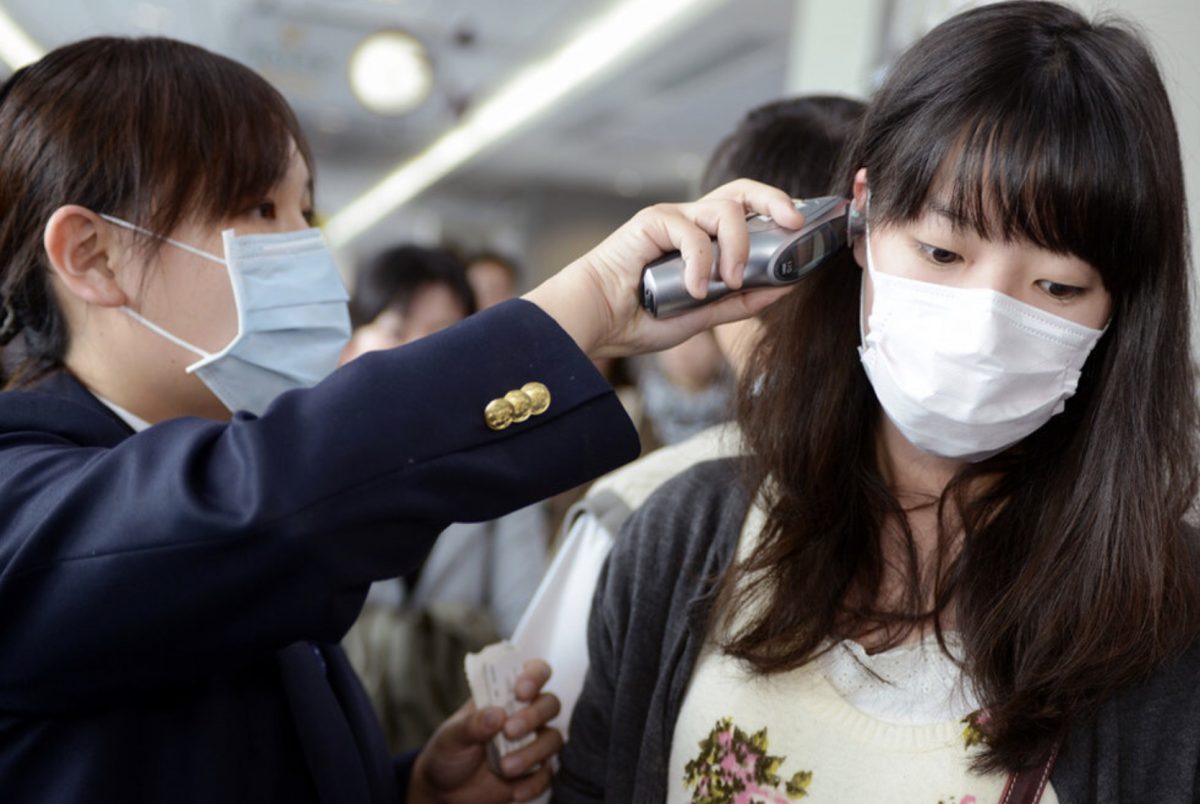As scientists, doctors, academics and conspiracy theorists toss around ideas and speculate on where the highly infectious virus originated, a professor in etiology at the National Taiwan University has claimed that the highly infectious virus could be “synthetic” in nature – in other words, man-made.
Questions about the exact origin of the novel coronavirus have grown as it spread across China and then beyond. Hubei, the central Chinese province where it first erupted, reported 499 new cases on Tuesday, while South Korea, Japan, Singapore and Italy have become the new frontiers in the battle to contain the contagion.
Speculation has grown about how the Covid-19 virus came into being. The official conclusion by Chinese authorities is that a dingy wet market in Wuhan – Hubei’s capital – was the source of the respiratory pathogen as animal-human transmission could have occurred there.
There has been much speculation about a virology institute in the city, affiliated with the Chinese Academy of Sciences, with rumors about a leakage due to slack management triggering a public health crisis worse than the SARS incident of 2003.
Some of the more nonsensical talk includes a conspiracy theory that the United States “made” the virus to mass-infect Chinese people and stop the rise of its arch-rival.
Now a professor in etiology at the National Taiwan University has claimed the highly infectious virus could be “synthetic” in nature, or man-made.
“Researchers likely synthesized the Covid-19, although more studies are needed to be certain,” NTU professor Fang Chi-tai told a forum on disease control and prevention in Taipei held by the Taiwan Public Health Association earlier this month.
During his presentation, Fang outlined several hypotheses raised by Taiwanese and overseas researchers, including the probability that the virus was “man-made” and was leaked from the Wuhan Institute of Virology due to gross mismanagement.
Fang said the Wuhan facility’s biosafety level-4 laboratory was used to store, handle and research samples of SARS, Ebola and other deadly infectious viruses
“Given China’s poor track record of lab safety management, including a leakage of the SARS virus at a state lab in 2004, it is possible that a virus escaped from the Wuhan facility and resulted in the epidemic,” Fang was quoted by Taiwan’s Central News Agency and the Taipei Times as saying.
He added that analyses of the Covid-19 virus have shown that it had a 96% genetic similarity with an RaTG13 bat virus also stored at the institute, and that the Covid-19 could be “manufactured” by modifying the RaTG13 virus.
Fang also revealed that French researchers had discovered four more amino acids in the gene sequence of Covid-19 than other known coronaviruses, which could be added artificially to make the viral transmission easier.
Fang’s theory is that natural mutations of viruses will only result in small, singular changes, and it is suspicious to see a naturally mutated virus suddenly take on four amino acids.
Determining the source of the virus would have important implications for epidemiology, he added, saying that if the virus was indeed synthetic, then it could be easier for it to be eradicated.
A woman wearing a protective facemask walks under lanterns in Taipei during the Lunar New Year on January 30, 2020. Photo: AFP/Sam Yeh
Meanwhile, Taiwan’s top research institute Academia Sinica said its researchers had already developed an antibody testing method for Covid-19 infection and made encouraging progress in synthesizing remdesivir, a medicine that many believe could cure the infection.
Taiwan’s Center for Disease Control on Tuesday sent serum samples from three people who had contact with Taiwan’s first Covid-19 fatality to the Academia Sinica, as part of a joint effort to determine the source of that infection and if the three had developed antibodies. The initial tests showed that only one sample had antibodies for Covid-19 and SARS.
The sample was obtained from a Taiwanese businessperson who was not listed as a confirmed case, as researchers believed his immune system had beaten the virus. Yet the institute said it was still a mystery whether a person who had recovered from a novel coronavirus infection could contract it again.
Another team at Taiwan’s Institute of Chemistry has also succeeded in synthesizing 100mg of remdesivir.
The synthesized drug cannot be used without the consent of a US pharmaceutical firm that manufactures remdesivir. It was reported that Taiwan was negotiating a technology transfer deal to start mass production of the antiviral drug.
Remdesivir is a novel drug developed by the California-based Gilead Sciences as a treatment for Ebola virus and Marburg virus infections, and it has subsequently been found to show antiviral activity against other viruses.
Based on its success against other coronavirus infections, Gilead provided remdesivir to physicians that treated an American patient infected with Covid-19 and was offering the compound to China for a pair of trials in infected individuals with and without severe symptoms.
The mystery of how and where the virus started may take longer to discover than the cure.
























